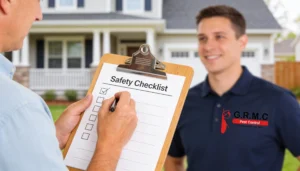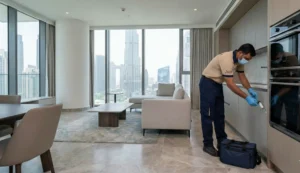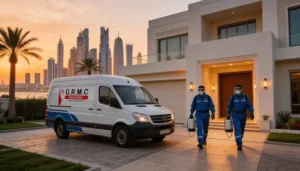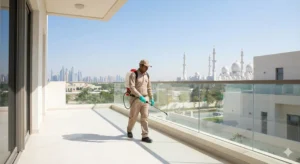Table of Contents
Dubai is a vibrant city, but its hot climate and urban density make it a breeding ground for pests. From cockroaches in the kitchen to termites in the walls, pest problems can escalate quickly. If you’re searching for pest control in Dubai, you need a service that is fast, certified, and eco-friendly.
In this article, we’ll walk you through everything you need to know about choosing the right pest control service in Dubai, with real tips based on local experience, authority, and trust.
Why Is Pest Control Important in Dubai?
Dubai’s warm and humid environment creates the perfect conditions for pests like:
Termites
Bed bugs
Ants
Rats and mice
Mosquitoes
These pests are more than a nuisance. They can carry disease, trigger allergies, and even damage your property.
🧠 Expert Tip: According to Dubai Municipality, regular pest control is recommended every 3–6 months for residential properties and monthly for commercial establishments.
Types of Pest Control Services in Dubai
Here’s what a typical pest control company in Dubai offers:
Residential Pest Control
Safe treatments for families with children or pets
Targeting ants, roaches, termites, and bed bugs
Odorless and non-toxic options available
Commercial Pest Control
Restaurants, warehouses, offices
HACCP & ISO-certified solutions for health compliance
Regular monitoring and reports
Termite Control
Pre-construction soil treatment
Post-construction inspections and treatments
Bed Bug Treatment
Heat treatment and chemical solutions
Guaranteed results with follow-up inspections
Eco-Friendly Pest Control in Dubai
Modern pest control companies in Dubai are shifting toward environmentally friendly solutions. These use:
Herbal or organic insecticides
Gel-based treatments (especially for cockroaches)
Biological pest control methods (in commercial agriculture)
🧪 Experience Insight: Organic pest control is especially recommended for homes with children or elderly residents who may be more sensitive to chemicals.
How to Choose a Trusted Pest Control Company in Dubai
Here’s a quick checklist:
| Criteria | Why It Matters |
|---|---|
| Dubai Municipality Approval | Ensures legal, safe, and compliant treatments |
| Licensed Technicians | Trained to handle chemicals professionally |
| Experience in UAE | Local experience matters due to regional pest types |
| Transparent Pricing | Avoid hidden costs and cheap knockoffs |
| Customer Reviews | Look on Google, Trustpilot, or local directories |
Top Areas That Need Pest Control in Dubai
Some regions are more prone to pest infestations due to moisture, construction, and density:
Deira & Bur Dubai – Older buildings, frequent cockroach and rodent issues
Jumeirah & Palm Jumeirah – Villas facing termite issues
Downtown Dubai – Apartments with bed bug problems
Al Quoz & Industrial Zones – Commercial pest infestations (rodents, cockroaches)
FAQ – Pest Control in Dubai
How much does pest control cost in Dubai?
Termite or bed bug treatments may cost more depending on the area.
Is pest control safe for children and pets?
Yes, many companies offer non-toxic or herbal treatments safe for kids and pets.
How long does a treatment take?
A typical visit takes 30 to 90 minutes. Some treatments may need follow-ups.
Do I need to leave the house?
For general treatments, you don’t need to leave. But for fumigation or chemical treatments, a short evacuation (2–4 hours) might be required.
What to Expect During a Pest Control Visit
Inspection – Technicians assess the pest type and severity.
Treatment Plan – A tailored strategy is created.
Application – Safe chemicals, gels, or sprays are used.
Post-Treatment Advice – Tips to avoid future infestations.
Why Local Experience Matters
Dubai’s pests are different from Europe or North America due to:
Climate (more humid)
Building materials (e.g., gypsum walls vs. concrete)
Local regulations (Municipality inspections)
That’s why choosing a local pest control expert with Dubai-specific knowledge ensures better results and long-term protection.
Dubai Municipality Pest Control Regulations, WHO Guidelines on Pesticide Use






